Forum Home > GMAT > Quantitative > Problem Solving (PS)
Events & Promotions
| Last visit was: 26 Jul 2024, 20:41 |
It is currently 26 Jul 2024, 20:41 |

Customized
for You
Track
Your Progress
Practice
Pays
08:30 AM EDT
-08:30 AM EDT
08:30 AM PDT
-09:30 AM PDT
09:55 AM PDT
-11:00 AM PDT
08:00 PM PDT
-09:00 PM PDT
05:55 AM PDT
-12:30 PM PDT
07:00 PM IST
-08:00 PM IST
09:00 PM IST
-10:00 PM IST
| FROM Stacy Blackman Consulting Blog: B-Schooled Podcast Episode #42: Wharton Team-Based Discussion Interviews |
 If you’ll be interviewing with Wharton, don’t miss this week’s discussion with Anthony Penna, an SBC admissions consultant who spent 10 years with the Wharton School in Career Management and as Associate Director of Admissions for the full-time MBA program. As Anthony served on the implementation and design team for Wharton’s Team-Based Discussion (TBD) interview format, this episode focuses on his insightful advice for MBA candidates who will be interviewing with Wharton. Listen to B-Schooled episode #42 here, or on any of the podcast apps listed below. B-Schooled is available on most major podcast apps, including: Apple Podcasts Spotify Stitcher TuneIn Please be sure to subscribe to B-Schooled so that you don’t miss a thing. If there’s something you’d like for us to cover in a future episode, please email podcast@stacyblackman.com. We’d love to hear from you! The post B-Schooled Podcast Episode #42: Wharton Team-Based Discussion Interviews appeared first on Stacy Blackman Consulting - MBA Admissions Consulting. |
| FROM Stacy Blackman Consulting Blog: MBA Advice for Couples |
|
[img]https://www.stacyblackman.com/wp-content/uploads/MBA-as-a-couple.jpeg[/img] [b]Does the couple that studies together really have more fun? In honor of Valentine’s Day, we’re sharing MBA advice for couples considering applying to business school. [/b] For some professional couples, there comes a time when both partners realize that pursuing an MBA degree is the key to exploring new career paths. However, the MBA admissions process is challenging enough for one person. Couples face additional considerations as they figure out their priorities and application strategy. Finding an MBA program that meets your needs must mesh with your partner’s preferences as well. This is one of the hardest parts of applying jointly to business school. You’ll want to avoid any unwelcome compromises or resentments that might damage your relationship. Start by making a list of target programs where you both will be thrilled to study. Here are tips to help you and your partner successfully navigate the application process and chart your course for career growth together. MBA Advice for Couples: School Selection No two candidates – even couples – are alike when it comes to test scores, leadership experiences, professional background, or extracurricular interests. Before applying to b-school, make sure each application is competitive. Unfortunately, the strength of one candidate won’t compensate for an unqualified partner. [img]https://www.stacyblackman.com/wp-content/uploads/pexels-j-carter-254069-734x489.jpg[/img] In addition to applying to the same set of schools, couples can expand their range of options by focusing on cities or regions where both would thrive. Think in terms of applying to schools in the same area. For example, you might apply to [url=https://www.stacyblackman.com/mba-application-advice/nyu-stern/]NYU Stern[/url] and [url=https://www.stacyblackman.com/mba-application-advice/columbia-business-school/]Columbia[/url] in New York City, or the [url=https://www.stacyblackman.com/mba-application-advice/upenn-wharton/]Wharton School[/url] in nearby Philadelphia. West coast fans can consider [url=https://www.stacyblackman.com/mba-application-advice/stanford-graduate-school-of-business/]Stanford Graduate School of Business[/url] or [url=https://www.stacyblackman.com/mba-application-advice/uc-berkeley-haas-school-of-business/]UC Berkeley Haas[/url] in the Bay Area. Other possibilities include [url=https://www.stacyblackman.com/mba-application-advice/harvard-business-school/]Harvard Business School[/url] or the [url=https://www.stacyblackman.com/mba-application-advice/mit-sloan/]MIT Sloan School of Management[/url] in the Boston area. In the Chicago area, options include the [url=https://www.stacyblackman.com/mba-application-advice/northwestern-kellogg/]Kellogg School of Management[/url] or [url=https://www.stacyblackman.com/mba-application-advice/chicago-booth/]Booth School of Business[/url]. Meanwhile, in Los Angeles, you have [url=https://www.stacyblackman.com/mba-application-advice/ucla-anderson/]UCLA Anderson School of Management[/url] and the [url=https://www.stacyblackman.com/mba-application-advice/usc-marshall/]USC Marshall School of Business[/url]. A smart strategy for couples open to this option is applying to identical schools in Round 1. Then, expand to nearby schools in Round 2 as a backup plan. Campus visits and info sessions are also essential for couples, even if they need to take place virtually this year. Take the time to get a good feel for each school and connect with current married or partnered students who can provide insight into their own application experiences. These resources can give you a better sense of how accepting the school is of joint applicants. [img]https://www.stacyblackman.com/wp-content/uploads/pexels-ketut-subiyanto-4132394-734x489.jpg[/img] MBA Advice for Couples: Timing Your Applications It may go without saying, but you should both apply in the same round. This makes the decision much easier when you know whether you both got in. Also, if possible, apply in the first round to leave some wiggle room, if needed. The MBA application process can become all-consuming. With two people balancing full-time jobs with test prep and essay writing, you might find that one of you is struggling and needs extra time to pull together the best possible application. A different approach for couples who know the region or city they ultimately want to work in is to stagger your MBA enrollment. One person continues to work while the other goes to business school. Then, the other person enrolls in an MBA program once their partner has graduated. MBA Advice for Couples: Loop in the AdCom Up Front Admissions committee members are compassionate human beings, not mere number crunchers. If both applicants are qualified to attend and are a good fit with the program, the admissions committee will usually try to keep couples together. [img]https://www.stacyblackman.com/wp-content/uploads/pexels-nicholas-swatz-2769753-1-734x413.jpg[/img] Some schools explicitly ask in the application if you’re applying jointly with a partner. But even if they don’t, it’s essential to share that information with the admissions committee. This is crucial if the rejection of one applicant means the partner wouldn’t attend if accepted. Both you and your partner should use the supplemental essay to explain that you’re part of a package deal. Also, make the admissions team aware of your joint application intentions as early as possible. When attending events on the road or on campus, touch base with representatives to explain your situation. Show them why you and your partner would make an excellent fit for their program. Jenna, a former NYU Admissions Officer on the SBC team added, “Stern normally does consider the applications together if they applied as partners. I had a SBC client last year who was able to leverage this in order to have CBS match a scholarship where her partner was also a scholarship recipient, but in that case they were equally competitive.” Your relationship status will likely come into play when the admissions committee is hesitant about just one of you. If the school feels that one candidate is outstanding and knows that he or she will only attend if the partner also gets in, chances are good that both will receive admissions offers. Enjoy the Ride An MBA is an emotionally intense and enriching experience. One of the best things about attending business school as a couple is witnessing each other’s growth in this unique environment. That, and taking pride in each other’s accomplishments. “Our time at HBS has brought us closer together,” said Kate Kingen and Patrick Garrison in this Harvard Business School [url=https://www.hbs.edu/mba/blog/post/applying-to-business-school-as-a-couple]blog post[/url]. “We met while working after college, so we did not know each other as students. Having the opportunity to learn, grow, travel, and meet a whole new set of people has been a wonderful new chapter in our relationship together.” From the support you can give each other during the application process to coming home at the end of each day during the degree process to share and debate your respective classroom experiences, going to business school with your partner may turn out to be the best decision you’ve ever made for both your career and personal life. The post [url=https://www.stacyblackman.com/mba-advice-couples/]MBA Advice for Couples[/url] appeared first on [url=https://www.stacyblackman.com]Stacy Blackman Consulting - MBA Admissions Consulting[/url]. [img]https://feeds.feedburner.com/~r/StacyBlackman/~4/_v_q_TbtkW4[/img] |
| FROM Stacy Blackman Consulting Blog: Diversity Essay for the MBA: Tips + Samples |
|
It’s no secret diversity, equity, and inclusion are incredibly important in MBA admissions. Business schools value broad representation in the admitted student class to enrich the program’s experience for all. For this reason, many schools have a diversity essay within the application. Here, candidates can preview how they would contribute to class dicussions with their unique personal history, values, or life experiences. [img]https://www.stacyblackman.com/wp-content/uploads/pexels-kindel-media-6775112-734x551.jpg[/img] But having a diverse background alone is not enough. Former Stanford GSB Admissions Director Derrick Bolton once [url=https://www.stacyblackman.com/speaking-with-derrick-bolton-stanford-mba-admissions-director/]signaled[/url] that application quality is equally important for minority applicants. “We are not going to take candidates who are not as strong as candidates from somewhere else, just to have that diversity,” he noted. MBA application essays give candidates a chance to share the value of their unique identity. As Bolton explained, it is the “mindset that the students have versus what their passports say or what their gender is.” In reviewing SBC admit data for the last five seasons, we see that every top MBA program has shown a preference for underrepresented minority (URM) applicants when those candidates have compelling stories in their essays and recommendation letters. [img]https://www.stacyblackman.com/wp-content/uploads/Esther-diversity-734x291.png[/img] For example, we worked with a URM male in private equity who gained admits to every school he applied to—including HBS—even with a GMAT below 650. Last season, we guided a female Hispanic candidate who had a GPA below 3.0. Nonetheless, she received admits to Duke Fuqua and Kellogg with scholarships. Diversity Application Materials For the MBA admissions process, the application essays are the avenue for highlighting the value of diversity. The following are four essay excerpts taken from successful MBA admits within SBC’s client pool. [b]Diversity Essay Sample #1[/b] Cultural sensitivity is an essential asset in India’s growing cosmopolitan cities and commercial life. For that reason, my parents sought out a school with a diverse student body to teach me how to navigate the modern Indian landscape. My classmates traced their roots to every corner of India, and my closest friends practiced three different religions. When the tumult in Indian society would sometimes descend into violence, my friends and I would reflect on these issues. We each had distinct opinions, and I saw how people with opposing beliefs interpreted the same situation differently. I learned to appreciate varied viewpoints—and even seek them out to expand my thinking and deepen my connections to those around me. [img]https://www.stacyblackman.com/wp-content/uploads/Stacy-diverse-applicant-734x348.png[/img] [b]Diversity Essay Sample #2[/b] We moved to the United States from Mexico in the 1990s. My father is a math professor and received a position at the University of Iowa. My experiences growing up in a “foreign” country have helped me to become a more open person. I now appreciate the world’s diversity and try to learn about people who are different from me. I experienced culture shock going from a town where everyone looked like me to a place where I was considered exotic. My classmates welcomed me, and in no time, I learned to speak English with almost no accent. The seasons in Iowa came as a shock to someone who grew up in a warm seaside town. Also, it took me months to become acclimated to the food. My mother used to have to travel to the next city over to find chilies and cilantro to prepare our favorite foods. But what has interested me the most over the years are the stereotypes that follow my life in the U.S. as a person of Mexican heritage. When I went to college, many of my classmates assumed I was on scholarship and that my parents had no formal education. When I told them that my mother is a dentist and my father is a professor, they had to change their conception of what a Mexican-American is. As someone who is often judged before someone gets to know me as a person, I have learned to see beyond the superficial in others. For example, one of my best friends in college was on a football scholarship. Many people assumed that Rick had no interest in intellectual pursuits and would only focus on sports and parties. Because of my background, I have learned never to make assumptions. That’s why I treated Rick as just as serious as any other classmate. Soon Rick and I started discussing the material from our world history class for hours. We built a strong friendship out of shared intellectual interests that lasts to this day. [b]Diversity Essay Sample #3[/b] In the past ten years, I have lived in seven different places while pursuing academic and professional opportunities. Through study abroad programs in high school and college, I spent one year in Rome and another in London. The greatest way in which I would be an asset to fellow Kellogg students is through the insight I can provide on cultural diversity. I would promote an environment where different ideas and perspectives can be expressed, understood, and accepted. Living in many different places taught me to adapt to new environments and bridge cultural differences. Drawing from my own experiences studying and living abroad, I can help the many international students attending Kellogg and ease their integration into every aspect of the school’s community. [b]Diversity Recommendation Letter Excerpt[/b] Sean will enhance the diversity of Wharton’s student body due to his unique international background. When he describes his experiences growing up in India and traveling through Western Europe, it shows he has a unique perspective on people, cultures, and religions. In addition, Sean’s struggles as a gay Muslim man dealing with his own life’s contradictions have led him to appreciate others’ unique qualities. I expect that Sean will bring tremendous diversity to the class with his exposure to culture, study, work, and travel. Fundamental Essay Writing: Tactical Tips We have several diversity specialists on the SBC team, including a former board member of [url=https://cgsm.org/]The Consortium[/url]. In partnership with [url=https://www.stacyblackman.com/sbc-partnership-riordan-programs/]The Riordan programs[/url], two of our diversity experts recently led an MBA essay workshop for URM applicants. In that presentation, they shared how candidates can optimize all aspects of the essays. When the fundamental elements of MBA essay writing are effective, a candidate’s own diverse voice, identity, and perspectives become vivid and compelling to the MBA admissions committee. [img]https://www.stacyblackman.com/wp-content/uploads/pexels-keira-burton-6084455-489x734.jpg[/img] SBC’s Top 6 MBA Application Essay Tips and Examples [list] Make sure you answer the question asked and do so early in the essay.[/*] Be specific rather than general. [/*] Don’t be afraid to get personal (but not too personal). [/*] Be bold in your aspirations and thoughtful/realistic about your plans.[/*] Let the S-T-A-R format be your guide. [/*] Have strong/memorable opening and closing sentences for each paragraph.[/*] [/list] [b]Essay #1: Personal Statement / Describe your personal leadership style[/b] Options: [img]https://www.stacyblackman.com/wp-content/uploads/essay-answers-734x334.png[/img] Best Practices: [img]https://www.stacyblackman.com/wp-content/uploads/essay-answers-better-1.png[/img] [b]Essay #2: Why School?[/b] Options: [img]https://www.stacyblackman.com/wp-content/uploads/Why-School-sample-1-734x334.png[/img] Best Practices: [img]https://www.stacyblackman.com/wp-content/uploads/Why-School-sample-2-734x364.png[/img] [b]Essay #3: Short & long-term goals[/b] Options: [img]https://www.stacyblackman.com/wp-content/uploads/Goals-version-1-734x332.png[/img] Best Practices: [img]https://www.stacyblackman.com/wp-content/uploads/goals-version-2-734x365.png[/img] Diversity in the b-school classroom is the best preparation for the challenges and rewards of the multicultural marketplace. SBC is the only MBA admissions firm with a complete panel of former Admissions Officers from all the elite programs. Several of these experts specialize in URM candidates and would love to help you tell your diversity story. Request a free analysis of your candidacy [url=https://www.stacyblackman.com/contact/]here[/url]. The post [url=https://www.stacyblackman.com/diversity-essay-for-the-mba-tips-samples/]Diversity Essay for the MBA: Tips + Samples[/url] appeared first on [url=https://www.stacyblackman.com]Stacy Blackman Consulting - MBA Admissions Consulting[/url]. [img]https://feeds.feedburner.com/~r/StacyBlackman/~4/azsdfUnULfc[/img] |
| FROM Stacy Blackman Consulting Blog: Harvard Business School Acceptance Rate, Deconstructed |
|
[img]https://www.stacyblackman.com/wp-content/uploads/HBS-Harvard-Business-School-Baker_library-cropped-734x430.jpg[/img] The Harvard Business School acceptance rate is the second-lowest of all MBA programs worldwide. It’s eclipsed only by Stanford GSB, in part because the GSB has a much smaller class size. Poets & Quants recently shared the acceptance rate and yield data for the [url=https://poetsandquants.com/2021/02/01/m7-mbas-business-schools-in-2020/]M7 MBA[/url] programs to illustrate the strength that HBS has in attracting applicants and students. HBS’s acceptance rate in 2020 was 11.5%, up from 10.4% a year earlier, per the US News rankings. To help demystify the Harvard Business School acceptance rate drivers, we decided to evaluate SBC client data from the 2019-2020 season. Our findings show that the admit patterns by HBS have become increasingly reliant on qualitative aspects, in addition to application essay strength and a broader range of demonstrated applicant attributes. Indeed, an applicant’s personal narrative is often the most influential factor in the admissions decision process. It can be even more predictive of admit success than rigid categories such as college type, test score, or employer. Discussing motivations, life lessons, setbacks, growth, doubts, and realizations are all ways to show a depth of character. When you do this, you activate the holistic and multi-faceted admissions criteria that HBS has come to value. Recent SBC Clients Admitted to HBS To preserve anonymity for our client pool, we’ve deconstructed each of our client profiles across these criteria: nationality, industry, employer, college, GPA, test score, and other distinguishing factors. Our consultants have shared client attributes for each of these criteria. We’ve aggregated the outcomes for HBS admits according to personal, extracurricular, and professional domains. These visuals showcase the kaleidoscope of qualities found in HBS admits across a sampling of recent SBC clients. [img]https://www.stacyblackman.com/wp-content/uploads/Work-word-bank-685x734.png[/img] [img]https://www.stacyblackman.com/wp-content/uploads/Community-word-bank-711x734.png[/img] [img]https://www.stacyblackman.com/wp-content/uploads/personal-word-bank.png[/img] Overcoming the Harvard Business School Acceptance Rate Odds In deconstructing the success factors for our HBS admits, we have seen that highlighting personal qualities and triumphs is essential. Our review concluded that neither past academic background nor test scores could reliably predict whether candidates got admitted or rejected. Furthermore, success appeared linked to how “interesting” the candidate appeared to admissions officers. Applicants conveyed this through both their overarching story and positioning as well as execution through detailed anecdotes and nuances. Life interests, values, and personal identity are critical influencers for the HBS admissions process and essential to overcoming the challenging HBS acceptance rate odds. As a recent [url=https://www.stacyblackman.com/comprehensive-services/]All-In package[/url] client and now HBS admit shared, “Don’t underestimate yourself or compare yourself to others too much. Recognize that your values, your lived experiences, and your interests are what make you YOU. Focus on letting that shine through your application. And definitely don’t NOT apply because you feel like you’re not qualified enough. Do not let the competition scare you. Just focus on what you can control— building and communicating the strongest application you can.” The post [url=https://www.stacyblackman.com/harvard-business-school-acceptance-rate-deconstructed/]Harvard Business School Acceptance Rate, Deconstructed[/url] appeared first on [url=https://www.stacyblackman.com]Stacy Blackman Consulting - MBA Admissions Consulting[/url]. [img]https://feeds.feedburner.com/~r/StacyBlackman/~4/rvCca7ouKwc[/img] |
| FROM Stacy Blackman Consulting Blog: B-Schooled Podcast Episode #43: Similar MBA Candidates, Different Outcomes |
 Now that interview invitations are starting to roll out over the next several weeks, some candidates may get frustrated if they get dinged but a co-worker, friend, or another applicant with a similar profile receives good news. This episode covers three reasons why candidates who seem alike on paper could end up with drastically different MBA admissions results. Listen to B-Schooled episode #43 here, or on any of the podcast apps listed below. B-Schooled is available on most major podcast apps, including: Apple Podcasts Spotify Stitcher TuneIn Please be sure to subscribe to B-Schooled so that you don’t miss a thing. If there’s something you’d like for us to cover in a future episode, please email podcast@stacyblackman.com. We’d love to hear from you! The post B-Schooled Podcast Episode #43: Similar MBA Candidates, Different Outcomes appeared first on Stacy Blackman Consulting - MBA Admissions Consulting. |
| FROM Stacy Blackman Consulting Blog: Using the GMAT Score Chart |
|
When you’re deciding what score to aim for, it’s important to remember that the population of test-takers writing the GMAT is smarter and better-prepared than (probably) any other population you’ve been graded against before. If you got a 95th percentile score on the SAT, or a 3.9 GPA at a good university, those numbers don’t mean that you “should” do just as well on the GMAT: many of your fellow test-takers are thinking the exact same thing, with the exact same background! It’s the nature of a test on a curve: if a 680 is a 90th percentile score, that means 89 percent of test takers won’t reach a 680. Yes, that’s obvious, but it’s important to recognize just how good at this test you have to be in order to secure one of those spots in the top 5-10 percent. Let’s take a closer look here. [b]GMAT Score Report: Percentiles & Raw Scores[/b] [img]https://www.stacyblackman.com/wp-content/uploads/gmatscoretable.gif[/img] [b]Do you even need a 700 on the GMAT?[/b] Here are client examples of lower test score admits to top MBA programs: a) Male admitted to HBS, GSB and INSEAD: 670 GMAT, 67% Q/ V- 76% b) Female admitted to HBS: 680 GMAT, 52% Q / 90% V) c) Female admitted to CBS: 630 GMAT, 51% Q / 71% V) She applied right on the deadline in Jan. Had her interview on March 4th and was admitted to CBS on March 23rd d) Male admitted to CBS J term: 610 GMAT e) Male admitted to HBS: 620 GMAT, 44 Q / 31 V (raw) f) Female admitted to NYU: 640 GMAT Partner with best in class GMAT and GRE experts and increase your score significantly. Check out our [url=https://www.stacyblackman.com/testprep/]test prep services here[/url]. Request a free game plan chat with SBC’s lead test prep tutor by emailing testprep@stacyblackman.com The post [url=https://www.stacyblackman.com/gmat-score-chart/]Using the GMAT Score Chart[/url] appeared first on [url=https://www.stacyblackman.com]Stacy Blackman Consulting - MBA Admissions Consulting[/url]. [img]https://feeds.feedburner.com/~r/StacyBlackman/~4/rnLgCqWqht0[/img] |
| FROM Stacy Blackman Consulting Blog: Get Into Business School: 7 Tips From MBA Admissions Officers |
 Demand for the MBA continues to rise due to the economic slowdown triggered by the COVID-19 pandemic. Consequently, countless inquiries to Stacy Blackman Consulting ask what it will take to get into business school. In particular, those elite M7 MBA programs. At SBC, we cull intel and real-time trends every week across our team, which includes former MBA Admissions Officers from every top US and EU MBA program. Many of these folks stay in touch with current MBA admissions staff to hear their priorities and use that information to help our clients. We’ve interviewed a select few SBC consultants to distill their advice on how to get into business school. These seven tips will give you an edge as you map out your MBA application strategy.  Research the MBA program’s breadth of offerings. Sherry, who has been with SBC for over ten years after a tenure at Duke Fuqua admissions, suggests applicants attend as many admissions sessions and events as possible to get to know the program better. “The MBA admissions team may provide updates on their requirements given current times,” she says. “Talk to current students and/or recent alumni to become more familiar with the program,” Sherry adds. ‘Hear their stories and discuss your short- and long-term goals to see if they seem realistic based on their knowledge of the program.” “Do your research on schools, find the right fit, know what they each offer,” says the former MIT Admissions Officer on our SBC team. Meanwhile, SBC consultant Caryn, a former Kellogg Admissions Officer, suggests applicants think beyond the traditional two-year MBA program. Kellogg has a full range of MBA programs that include the One-Year (1Y) program, MMM, and the new MBAi program. “If you are a good fit for any of these programs, it may be a more targeted way to apply to Kellogg and help set you apart from the masses applying to the 2Y program, especially with all the increased COVID applicants this year,” Caryn says. Ensure your academic record is within range. These are increasingly competitive MBA admissions years. To get into business school, your GPA and GMAT/GRE need to be well within the program’s averages. Check the average reported stats online, like this one at Wharton, to compare your academic record. Remember, there’s always a range for test scores and GPA for every MBA program. School Name GMAT GPA Harvard 729 3.67 Stanford 737 3.73 Penn Wharton 730 3.6 Northwestern Kellogg 728 3.6 Columbia 720 3.5 Chicago Booth 726 3.58 MIT Sloan 724 3.58 Berkeley Haas 717 3.64 Duke Fuqua 695 3.47 You can’t do anything about your undergrad grades. But, if you had grades lower than a B in a quant class, consider taking an online class (and getting an A) to demonstrate classroom proficiency.  “If your overall GPA is low or you have several C’s, it’s helpful to write an additional essay to explain why the grades were low (be sure to own up to any issues!) and how they are not indicative of your ability to succeed,” Caryn explains. “For a low GMAT or GRE score, I advise retaking it at least once,” she adds. “Not only can this improve your score; it also shows self-awareness and that you are trying to improve.” Get Into Business School: GMAT or GRE? If you are having trouble with one test, say difficulty with the GMAT quant section, try the GRE (or at least take a practice test). This exam still has a quant component, but it tends to be easier for those from non-quantitative backgrounds. “I know very few people enjoy taking these tests, but it’s a necessary evil in most cases,” Sherry says. “I have seen candidates improve their chances dramatically by trying a different exam. For example, as of now, Duke is accepting unofficial GMAT, GRE, and Executive Assessment scores (official scores are required if admitted).” What about those business schools offering test waivers this year? Does that mean admissions might be easier? Not likely. Our former MIT Admissions Officer says, “Take the GMAT/GRE even if it is waived—especially if you have a lower GPA or some bad grades.” The test waiver during the pandemic has created opportunities for many MBA hopefuls. By the same token, it has also contributed to a carefree test mindset among some applicants. At SBC, we favor submitting a test score to increase admit odds for most MBA applicants for the top programs. Gather intel to show your LOVE for the MBA program. The application process for top MBA programs is like a courtship. If you want to get into business school, you must show them the love. And it needs to be authentic and sincere. Demonstrating a deep knowledge of the MBA programs is extremely important. When relaying why X MBA program is perfect for you, get specific about the classes, professors, and clubs that interest you.  “Across all application touchpoints—including essays and interviews—it’s crucial to demonstrate that the MBA program is your one and only,” Caryn says. A good rule of thumb, she adds, is that “if you can easily substitute in another school’s name, you need to be more specific!” Be true to yourself. “Everyone has a unique and powerful story,” says SBC consultant Meg, formerly with the Chicago Booth Admissions Office. It’s imperative to focus on conveying an authentic version of yourself. Don’t try to deliver what you think the committee wants to hear. AdComs look for every possible opportunity to get to know you so that they can determine whether you’ll be a great fit for their community, she explains. You, in turn, must want the same! “Your job is to know yourself and seek out schools where you can see yourself thriving,” Meg says. “As much as this process can feel one-sided, the reality is that you should be vetting them as much as they’re vetting you.” Choose recommenders who will be your champions. Applicants should give MBA recommenders plenty of time to do their work and make sure they know what schools expect. “Think deeply about your recommenders and prepare them accordingly. Admissions Committees rely heavily on the perspective of your recommenders,” Meg explains. In many cases, and especially if that recommender has an MBA from a top program, that opinion can be the deciding factor for candidates, she reveals. 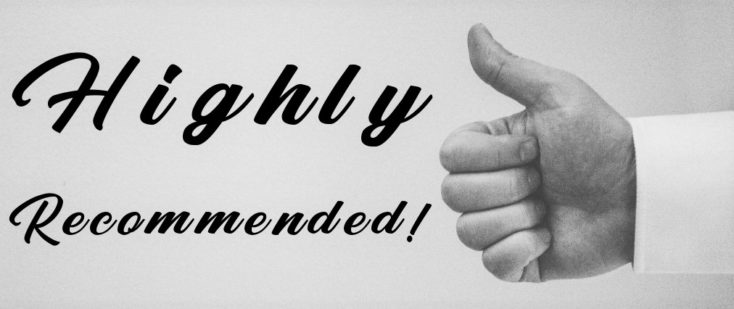 Make sure they know what you believe your weaknesses are. Also, be direct about asking them to highlight examples of your leadership, promotability, and collaborative nature in the workplace. Finally, “if one of your recommenders isn’t your current supervisor, be able to have an exceptional reason for this,” Meg advises. Take the 10,000-foot view in your MBA applications. Does the combination of all your application components add up to showcase a well-rounded MBA candidate? One who can not only compete in the classroom but can work on teams, bounce back from setbacks, and work tirelessly to achieve success? MBA programs are looking for more than a “perfect on paper” candidate. Resilience, grit, proven collaboration, and work experience with promotions are critical indicators of success within a program. SBC consultant Caryn emphasizes the following key success factors that should run through all of your application components. Leadership and collaboration The ability to motivate a team to make an impact continues to be important. Demonstrate leadership but be careful here not to only convey “I did this, and I did that.” Instead, use the space to show (versus tell) the reader how you lead. Innovative thinking Show where you questioned the existing way of doing things or came up with an out-of-the-box solution. In light of COVID, there were most likely a ton of new ways you had to go about doing things this year. In-depth involvement To get into business school, you need to show you are more than your job. Use extracurriculars to set yourself apart from other applicants, especially if you are in an oversubscribed population. Highlight not just a laundry list of extracurriculars but also go deep into a cause that is important to you. Career goals It’s important that goals are not only clear and ambitious but also achievable. Ideally, they should have some linkage with your background, even if it’s an extracurricular activity. Pay attention to the details—every touchpoint matters. Our former MIT admissions officer reminds applicants to fill out the application carefully and completely. Double-check your grammar and spelling on all written portions, and answer the questions asked. Tell them what they want to hear, not what you want to say. “Answer the questions! Whether a short-answer prompt or a long-form essay, every word should relate directly back to the question asked,” Meg counsels. “Essays are a test within a test. Admissions Committees want to see that you can tell your story in a compelling and concise fashion.” Your resume, meanwhile, should be able to tell most of your story. While there are nuances to everyone’s individual story, your resume should be a one-page summary of your life to date in a format that’s easily digestible. 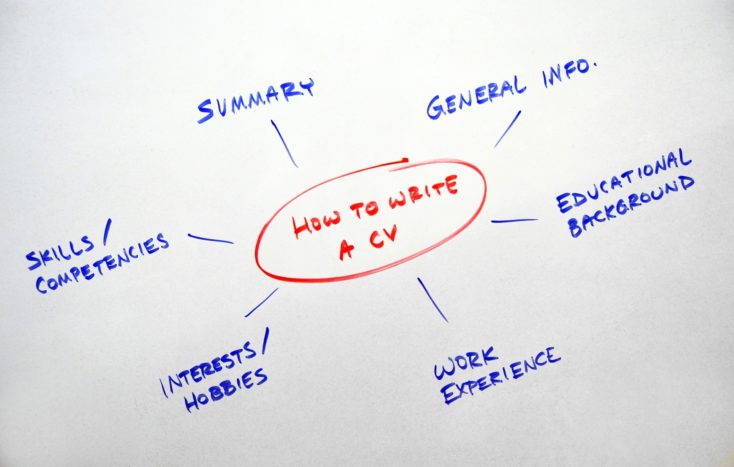 Your work experience should showcase a high-level of contributions to the organization that added value, were innovative/unique, or were above your current level. Your undergraduate and post-graduate extracurricular activities and interests’ sections should showcase a multi-faceted individual who is comfortable in many settings. In closing, we’d like to share this advice our entire consulting team agrees upon for MBA applicants. When you want to get into business school, you need to block out the noise. Ignore the forums. Don’t feed into all the stress. Just put your head down and focus on putting together the strongest possible business school applications. The post Get Into Business School: 7 Tips From MBA Admissions Officers appeared first on Stacy Blackman Consulting - MBA Admissions Consulting. |
| FROM Stacy Blackman Consulting Blog: Write a Winning MBA Personal Statement |
 The majority of candidates who apply to the leading business schools are bright, personable overachievers. Honestly, they would be an asset to any program. That’s why when it comes to the MBA personal statement, you need to think beyond your obvious achievements. Unleash your inner storyteller Tell a compelling story if you hope to stand out amid the thousands of essays read by the admissions team each year. Make sure your personality comes through. The admissions team should get a real sense of who you are. They should also understand why you want to attend X program.  So, think beyond your obvious achievements. You can differentiate yourself by highlighting the most compelling, memorable stories and experiences. Fair warning: The admissions team is adept at sussing out applicants who have merely switched out the school name from another MBA personal statement. Don’t be that applicant! Perhaps the worst thing you can do in a personal statement is a chronological recap of the resume. That, and submit an essay that lacks emotion, personality, or self-disclosure. You have to get personal (hence the name “personal statement”). Make sure the reader feels genuineness and authenticity. MBA Personal Statement at HBS and Stanford “The personal narrative really is a make or break for MBA admit success,” says a former Harvard Business School admissions officer on the SBC consulting team. “It is the essay execution that sets the overall application apart and earns it the interview.”  Again, the goal of the MBA personal statement is for the reader to understand who you are. “Be genuine,” advises the HBS admissions blog and continues: “Yes, we want you to put your best foot forward, but be careful not to be so ‘polished’ that we can’t get to know the real you.” Setbacks and lessons learned can be just as informative as success stories if the stories reveal more about what motivates and inspires you. “The reader should feel so moved they want to meet you immediately – can’t wait to get to know you better, hear more of the story, ask you specific questions to learn more, be inspired, etc.,” shares one of the former HBS admissions officers on the SBC team. The same logic goes for the Stanford Graduate School of Business. Understanding Stanford’s culture and academics will help you tailor your MBA personal statement. Before starting, talk to Stanford students and alumni. Get to know the school via virtual events to see the Stanford community first-hand.  As far as what constitutes a winning MBA personal statement for Stanford, one of SBC’s former GSB admissions officers says, “GSB is looking for people who will make a big difference AND have a better shot than most in being able to execute. Stanford GSB students also seem to have this ‘X’ factor associated with them. Almost like an ‘unexpected’ trait, talent, or experience.” The MBA personal statement for Stanford is about diving deep into what motivates you and why. Topics can range from personal history to big-picture visions of the future. Steer clear of explicitly career-related topics and note that the strongest essays are likely not career oriented at all. No one’s story is quite like yours. When evaluating your candidacy, admissions teams will look for evidence in your MBA personal statement that shows you have a unique perspective that will add something new to the classroom. Remember, you are not just your resume. You are the white spaces in between. You are the transitions that got you from A to B, which will get you from B to B-school. So celebrate who you are if you want an admissions director to do the same. Main image credit: Eric at Flickr (CC BY-ND 2.0) The post Write a Winning MBA Personal Statement appeared first on Stacy Blackman Consulting - MBA Admissions Consulting. |
| FROM Stacy Blackman Consulting Blog: B-Schooled Podcast Episode #44: Negotiating Merit Scholarships |
 If you’ve been accepted to an MBA program, congratulations! If you’ve been accepted to an MBA program *and* have received merit aid from the school, even better! This episode of B-Schooled covers:
B-Schooled is available on most major podcast apps, including: Apple Podcasts Spotify Stitcher TuneIn Please be sure to subscribe to B-Schooled so that you don’t miss a thing. If there’s something you’d like for us to cover in a future episode, please email podcast@stacyblackman.com. We’d love to hear from you! The post B-Schooled Podcast Episode #44: Negotiating Merit Scholarships appeared first on Stacy Blackman Consulting - MBA Admissions Consulting. |
| FROM Stacy Blackman Consulting Blog: Knight-Hennessy Scholars for Stanford GSB Applicants: Facts and Tips |
|
[img]https://www.stacyblackman.com/wp-content/uploads/Stanford-GBS-Knight-Management-Center-734x486.jpg[/img] Knight-Hennessy Scholars is an international graduate-level scholarship [url=https://knight-hennessy.stanford.edu/]program[/url] for study among a 90-student cohort at Stanford University. Established in 2016, the program prepares students to take leadership roles in finding creative solutions to complex world issues. This encompasses the environment, healthcare, education, inequality, and social justice. A hallmark of the program is innovation through multidisciplinary and multicultural understanding. [b]What makes me eligible to be a [/b][b]Knight-Hennessy Scholar?[/b] As described on the program’s website, Knight-Hennessy Scholars should demonstrate: [list] [*] Independence of Thought[/*] [*] Purposeful Leadership[/*] [*] Civic Mindset[/*] [/list] You may apply to the Knight-Hennessy Scholars program if you are applying to enroll in a full-time graduate program(s) at Stanford. This includes, but is not limited to, the JD, MA, MBA, MD, and MPP programs. Priority goes to those who are spending at least two years in graduate education at Stanford. To be eligible for consideration, the applicant must have graduated with a first/bachelor’s degree less than six years before applying (in 2014 or earlier, for the autumn 2022 intake). Knight-Hennessy Scholars for MBA applicants The most attractive aspect of the program for our clients is that Knight-Hennessy Scholars receive funding to pursue their MBA at Stanford. Other program benefits include rich leadership development programming and a community hub to unite scholars for dialogue and collaboration. [img]https://www.stacyblackman.com/wp-content/uploads/Stanford-aerial.jpg[/img] At SBC, our clients applying to Stanford GSB for their MBA often add the Knight-Hennessy Scholars application concurrently. The timing of the application is such that an MBA applicant submits for the MBA program in either Round 1 (early September) or Round 2 (early January), and then submits to the Knight-Hennessy Scholars. For the 2020-21 admissions season, the application timeline for Knight-Hennessy Scholars was: [list] Application Due: October 14, 2020, at 1:00 pm (Pacific Standard Time)[/*] Finalist notification: February 3, 2021[/*] Immersion Weekend: March 6, 2021 [/*] Decision notification: April 2021 [/*] [/list] [img]https://www.stacyblackman.com/wp-content/uploads/Knight-Hennessy-Scholars-734x206.png[/img] Knight-Hennessy Scholars Application Essays: In addition to submitting to the GSB MBA program, Knight-Hennessy Scholars need to fulfill[url=https://knight-hennessy.stanford.edu/admission/application-process/short-answers-and-essay] specific requirements[/url] and answer the essays below. [list] After graduating from Stanford, what are your immediate and long-term intentions? (150-word limit)[/*] How will your Knight-Hennessy Scholars experience prepare you to realize your intentions? (150-word limit)[/*] Please tell us eight improbable facts (things that are unlikely but true) about you. (150-word limit)[/*] Please tell us when you: a) made someone proud of you, b) were most challenged, and c) did not meet expectations. (150-word limit combined)[/*] Connect the dots. How have the influences in your life shaped you? (600-word limit)[/*] [/list] [b]What can help improve my odds of selection at the finalist stage?[/b] At SBC, we have several Stanford experts who have successfully guided Knight-Hennessy Scholars applicants. Here is advice from one of our experts: Try to imagine the other students who will be your classmates. We recommend that you look at past recipients’ profiles. Think about: What do you want to learn from them? What can you contribute to the community? [list] Paint a picture of how you’ll be involved at school. [/*] If asked about random facts about you, not everything has to be intentional – feel free to include a few quirky facts [/*] Highlight any cultural and international themes and experiences, as these are always valued.[/*] [/list] We asked SBC consultant Dione, one of our Stanford GSB experts, about her perspective on this program. Dione says, “Knight-Hennessy Scholars gain a unique opportunity to belong to a close-knit community of people from different disciplines and cultures who share their goal of becoming impactful, global leaders. I would encourage anyone for whom the GSB’s mission to ‘Change Lives. Change Organizations. Change the World.’ resonates to learn more about this program. The reflection and preparation required to apply to be a Knight-Hennessy Scholar are very much in line with what it takes to be a compelling candidate for the GSB’s MBA and MSx programs.” You can request a free analysis of your candidacy [url=https://www.stacyblackman.com/contact/]here[/url]. SBC is the only MBA admissions firm with a complete panel of former Admissions Officers, several of whom specialize in Knight-Hennessy Scholars candidates. The post [url=https://www.stacyblackman.com/knight-hennessy-scholars-for-stanford-gsb-applicants-facts-and-tips/]Knight-Hennessy Scholars for Stanford GSB Applicants: Facts and Tips[/url] appeared first on [url=https://www.stacyblackman.com]Stacy Blackman Consulting - MBA Admissions Consulting[/url]. [img]https://feeds.feedburner.com/~r/StacyBlackman/~4/nILj9lWCVlI[/img] |
| FROM Stacy Blackman Consulting Blog: The Power of Thank-You Notes |
 “Fresh ideas from the Blacklight” SBC’s Weekly Newsletter for Professionals Okay, let’s clear this up right at the top because we know most some people dread writing thank-you notes. Yes, the writing of said thank-you notes is generally a tedious, pro forma chore. But, when it comes to job interviews, if you neglect to send one after, you do so at your peril. Now, onto the whys and hows of a killer post-interview thank you. Why write thank-you notes According to a Career Builder survey, 57% of job candidates don’t send thank-you notes. Also, per Career Builder, most recruiters expect a thank-you note from candidates. So, if you’re up against an equally qualified applicant, sending a thank-you note might give you an edge over the competition—and a salary boost. A study shared in Business News Daily revealed that 63% of recruiters would be more likely to hire a candidate who asked for more money and sent a thank-you note versus one who asked for less but did not send one. Besides standing out for your graciousness, a thank-you note can also act as a powerful tool to further your candidacy. What to write in thank-you notes You’ll find plenty of templates on the interwebs—like this one from the Yale career office—to provide you with a framework for writing a professional thank-you note. The critical factor to keep in mind is personalization. Remember, the message is more than an expression of gratitude. It’s also a chance to reiterate your qualifications and key points you made during the interview.  Show that you were fully engaged during the conversation by touching on some of the topics that came up. And don’t miss this moment to show how psyched you would be to land the position at X company. Thank-you notes are a great place to sneak in something extra you wish you had mentioned during the interview. Also, don’t shy away from adding a touch of personality to the note to help you stand out in our automated world. Want to take your letter to the next level? Take a cue from Muse writer Alexandra Franzen on how to work your ideas into a creative follow-up. When to send the thank-you note Send the note the same day or within 24 hours of the interview. Some people believe the most crucial aspect of the thank-you note is how quickly you can send it. Think of the note as the finale of your interview experience. Use your judgment when deciding between sending an email or a handwritten note; both have their merits. Or have the best of both worlds. Send an email thank-you the day of the interview and follow up with a handwritten note snail-mailed the next day. We hope this goes without saying, but these notes should not be identical!  Don’t forget to proofread! If there’s one thing recruiters agree on, it’s that typos make you look bad, like, really bad. In fact, for some, it’s a dealbreaker. Forbes writes that 63% of hiring managers say they wouldn’t hire a candidate who made a typo during the interview process. Top-notch verbal and written communication skills are one of the most essential soft skills you can have. So triple-check the spelling of your interviewer’s name and read through the letter several times before sending it to ensure it has zero grammatical errors. You may never know if thank-you letters are an absolute dealmaker, or breaker, at the company you are targeting. But err on the side of caution. It shows you’re invested in the position and appreciative of their time. It also highlights your good manners—something all of us could show a little more of these days. *** Did you enjoy this post about the power of thank-you notes? It originally appeared on the Blacklight, our weekly newsletter for professionals. At the Blacklight, we aim to illuminate with every dispatch that lands in your inbox. If you’re thirsty for guidance to help you slay it at work or as a student and move your goalposts closer, sign up today! The post The Power of Thank-You Notes appeared first on Stacy Blackman Consulting - MBA Admissions Consulting. |
| FROM Stacy Blackman Consulting Blog: Don’t Overlook School Culture When Creating an MBA Shortlist |
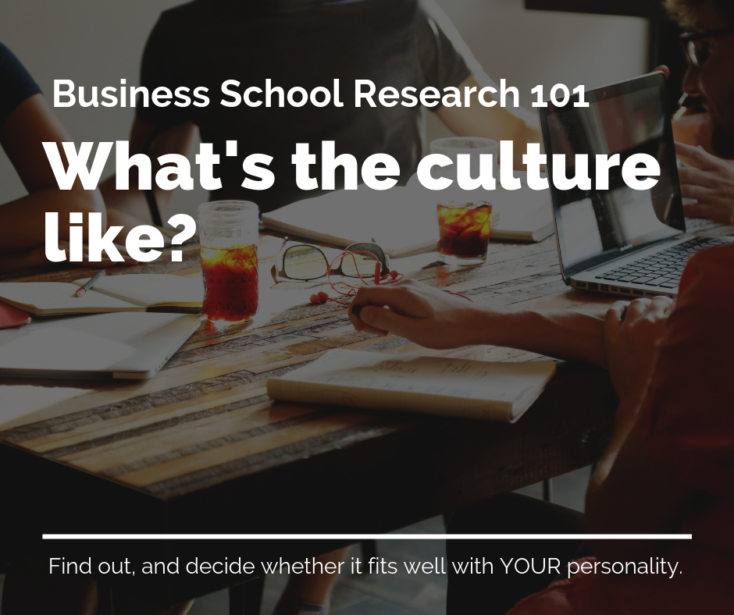 Now is the time when many potential MBA applicants are neck-deep in the school research phase of the admissions process. When choosing which business schools make your Top Five list, what matters most? Do you prioritize rankings and reputation or the institution’s culture and values? Defining a school’s culture is a smart strategic move that many applicants overlook. Getting a feel for the prevailing culture will help you decide whether the program fits well with your personality. Is the school culture predominantly competitive or collaborative? Size and location often play an important role in this regard – larger programs in urban centers, such as Harvard, the University of Pennsylvania’s Wharton School, and Chicago Booth typically feel much more competitive and intense. Smaller business schools and those located in rural settings usually foster a close-knit community feeling. Here, many students live on campus and socialize with fellow students and faculty regularly. MBA programs with smaller cohorts, such as the Massachusetts Institute of Technology’s Sloan School of Management, Dartmouth College’s Tuck School of Business, Stanford Graduate School of Business, and Yale School of Management, take pride in their down-to-earth, collaborative cultures. There’s no right or wrong when it comes to evaluating school culture. It’s simply a matter of choosing the environment that’s best for you. For more insight, read this article on the MBA programs with the best cultures and classmates. A student who feels comfortable and engaged will have a more enjoyable and rewarding business school experience. Remember, the relationships you forge with the school, and your classmates last a lifetime. Knowing whether you’d thrive in a collegial, teamwork-driven environment or a more intense and competitive program is just one question you can ask yourself when gauging “fit” with a particular school. A little research and a hefty dose of self-reflection will help you find which MBA program is the best fit for YOU. The post Don’t Overlook School Culture When Creating an MBA Shortlist appeared first on Stacy Blackman Consulting - MBA Admissions Consulting. |
| FROM Stacy Blackman Consulting Blog: B-Schooled Podcast Episode #45: The “Bird in Hand” Dilemma |
 In this episode of B-Schooled, we discuss four things you need to consider if you find yourself facing the “Bird in Hand” dilemma, named for the old quote that goes, “A bird in the hand is better than two in the bush.” For MBA candidates, this dilemma occurs when they have been admitted to at least one program, but are considering not claiming their spot. Instead, they are contemplating forgoing the sure thing and taking the risk of trying again in the future in the hopes of getting into a program they’re even more interested in. When does it make sense to do this, and when might you be better off sticking with your original plan to attend a program in the fall? Find out in B-Schooled episode #45, which you can listen to here, or on any of the podcast apps listed below. B-Schooled is available on most major podcast apps, including: Apple Podcasts Spotify Stitcher TuneIn Please be sure to subscribe to B-Schooled so that you don’t miss a thing. If there’s something you’d like for us to cover in a future episode, please email podcast@stacyblackman.com. We’d love to hear from you! The post B-Schooled Podcast Episode #45: The “Bird in Hand” Dilemma appeared first on Stacy Blackman Consulting - MBA Admissions Consulting. |
| FROM Stacy Blackman Consulting Blog: MBA Timeline: Key Target Dates for MBA Applicants |
|
[img]https://www.stacyblackman.com/wp-content/uploads/MBA-APPLICATION-JOURNEY-734x413.png[/img] [list] Spring and summer of your application season is for research, test-taking, and application strategy and development[/*] September and October—Round 1 deadlines [/*] Early January—Round 2 deadlines[/*] Late March/early April—Round 3 deadlines. Spring deadlines are ideal for deferred MBA admissions for college seniors, part-time and EMBA programs. [/*] [/list] Are you planning to apply to business school in the fall? Once you’ve decided to pursue an MBA, you’ve got your work cut out for you. MBA applicants need to fit studying for the GMAT or GRE and developing essays in with other personal and professional commitments. That’s where an MBA timeline comes into play. Having a game plan for completing the admissions components within a schedule means you won’t deal with undue stress and sleepless nights. The best way to do this is to put together your MBA application timeline months before your target deadlines. MBA Timeline: Getting Started Early spring of your MBA application season is when we recommend starting the research on schools, [url=https://www.stacyblackman.com/school-culture/]finding the right fit[/url], estimating admit odds, checking application requirements, and learning what each program has to offer. [img]https://www.stacyblackman.com/wp-content/uploads/pexels-tima-miroshnichenko-5198239-734x489.jpg[/img] “Attend as many admissions sessions and events as you can to get to know the program better and hear from the MBA admissions team, who may provide updates on their requirements given current times,” advises Sherry Holland, who has been with SBC for over ten years after a tenure at Duke Fuqua Admissions. “Talk to current students and/or recent alumni to become more familiar with the program. Hear their stories, and discuss your short and long-term goals to determine if they are realistic based on their knowledge of the program,” she adds. Spring is also the time to check the average reported statistics online to calibrate and [url=https://www.stacyblackman.com/b-schooled-episode-6-strengthening-quantitative-profile/]bolster your academic record[/url]. But know there’s always a range with respect to test scores and GPA for every MBA program. How Much Time for Test Prep? MBA hopefuls often ask how far in advance before applying should they take the GRE or GMAT. Also, how much time should they spend on test prep? Our clients usually need 3-4 months for test preparation, depending on how much time they have to study if they’re still working. Test scores are one variable that allows us to rank potential MBA programs into [url=https://www.stacyblackman.com/why-your-mba-short-list-should-include-dream-target-and-maybe-safety-schools/]reach versus reasonable categories[/url]. So, we prefer to have several diagnostic test scores or even the actual test score—ideally not later than two months before the application deadlines. Get the test done early to optimize your efforts and to decide whether to engage an MBA admissions consultant. “In an ideal world, separating your test prep from your essays/applications work allows you to fully focus on each and helps to minimize the stress of trying to do everything all at once as deadlines loom,” says Sara Archer, SBC’s lead test prep tutor. Test scores are good for up to five years. When thinking about your MBA timeline, the earlier you start studying and secure a satisfactory score, the better. Keep in mind, there often is some overlap between studying and working on applications. [img]https://www.stacyblackman.com/wp-content/uploads/pexels-pixabay-301920-734x489.jpg[/img] “Depending upon your goals, I usually advise taking 3-4 months to prepare for the GMAT or the GRE ([url=https://www.gmac.com/executive-assessment/about/why-take-the-executive-assessment]EA preparation[/url] can often be done in less time). Studying a bit each night throughout the week will help you to retain your learnings,” Archer notes. The weekends are a great time for practice tests or more intensive studying. Candidates shooting for top scores usually study around 100-150 hours. “But remember, quality is better than quantity. Work to understand each problem and why you got it right or wrong,” she adds. “The goal is to study productively—not just to do a lot of practice problems!” What to Know About the Different Application Rounds By now, you know business schools have two or more application deadlines, or rounds, by which candidates need to submit their application materials. So, does that mean there’s an optimal time to apply? Round 1 takes place in the fall, either September or October, whereas round 2 takes place in early January. Round 3, meanwhile, hits in March or April. Some schools have slight differences such as Early Action deadlines. For top US, full-time MBA programs, we [url=https://www.stacyblackman.com/these-applicants-should-apply-round-1/]almost always encourage candidates[/url] to apply in rounds 1 or 2. That’s because there are simply fewer spots open in round 3. [img]https://www.stacyblackman.com/wp-content/uploads/Timing-is-Everything-734x413.png[/img] That said, round 3 is perfectly acceptable for some MBA program types. This includes part-time and EMBA programs, EU-based programs, as well as some lower-ranked full-time, two-year US MBA programs. College seniors applying for [url=https://www.stacyblackman.com/top-deferred-mba-programs-mba-without-work-experience/]deferred MBA admissions[/url] programs are almost always aiming for spring deadlines (late March and early April). How to Submit a Quality Application On Time To achieve this goal, frontloading tasks is a key tool of a successful MBA timeline. Our best admit outcomes are from clients who have plenty of lead time before MBA deadlines to assemble thoughtful and high-quality application materials. We need a minimum of 4 weeks prior to deadlines. But it’s ideal to have 2-6 months of lead time before application deadlines. Most of our clients begin work with us on average of 4-5 months prior to the deadlines. One of our [url=https://www.stacyblackman.com/hbs-2-2-deferred-mba-get-accepted/]HBS admit clients[/url] emphasized that the application process is a journey. “One thing that helped give me an extra boost of confidence to apply was telling myself that even just the application process itself was a tremendous growth opportunity—a chance to reflect and figure out my future goals,” she said. “And it truly was a fantastic experience. I feel like a more self-aware person now than before I applied.” The post [url=https://www.stacyblackman.com/mba-timeline-key-target-dates-for-mba-applicants/]MBA Timeline: Key Target Dates for MBA Applicants[/url] appeared first on [url=https://www.stacyblackman.com]Stacy Blackman Consulting - MBA Admissions Consulting[/url]. [img]https://feeds.feedburner.com/~r/StacyBlackman/~4/mWjBEcAcq30[/img] |
| FROM Stacy Blackman Consulting Blog: The Consortium for MBA Applicants: Should You Apply? |
|
[img]https://www.stacyblackman.com/wp-content/uploads/pexels-kindel-media-6775112-734x551.jpg[/img] Now more than ever, there’s an urgent need for greater diversity in business schools and the business world at large. Recognizing this, many MBA programs have ramped up their efforts to increase enrollment for qualified candidates from underrepresented minority (URM) groups. One group working tirelessly to advance URM representation is [url=https://cgsm.org/about-us/]The Consortium[/url] for MBA applicants. Each MBA admissions season, we guide several dozen [url=https://www.stacyblackman.com/sbc-scoop-diversity-application-through-the-consortium/]clients[/url] through the MBA application process in parallel with the admissions process for The Consortium. Indeed, multiple members of the SBC team are Consortium experts. For instance, SBC consultant Erin is a former Board member of The Consortium who also served as an Admissions Officer at two top MBA programs. [url=https://www.stacyblackman.com/consultant/jessica-s/]SBC consultant Jessica[/url], meanwhile, was a Consortium Fellowship recipient herself while at Darden’s MBA program. What is The Consortium? “Historically, The Consortium initially focused on African American men but was later expanded to focus on all African Americans, Hispanic and Native Americans,” Jessica explains. “In more recent years, their mission has expanded to include not just minorities but anyone who can materially advance the mission of The Consortium: to further advance underrepresented minorities in the workplace.” [img]https://www.stacyblackman.com/wp-content/uploads/pexels-rfstudio-3810796-734x524.jpg[/img] Should I apply to the MBA via The Consortium? We encourage clients to apply to MBA programs in conjunction with The Consortium if they meet either of the following criteria: [list] [*]The applicant is targeting MBA programs that are member schools of The Consortium. Not all programs participate in The Consortium.[/*] [*]They have shown a commitment through work and/or community activism to advancing The Consortium’s mission and supporting URM causes. [/*] [/list] “The Consortium is URM agnostic,” Jessica explains. “Consortium wants you to support the mission, but you don’t have to be a minority. An applicant’s impact and advocacy experiences should support underrepresented minorities.” “It’s a case-by-case basis whether to apply to The Consortium, either based on URM background or the industry you serve towards URM,” she adds. “I would not necessarily encourage candidates with non-profit backgrounds to apply with The Consortium just because the industry background is social justice. For example, I worked for a non-profit for three years straight from college, but we didn’t serve the URM population. Also, while The Consortium tries to push its overarching message and guidelines to be consistent for each school and how they evaluate candidates, it will always be slightly subjective based on the MBA program’s admissions team.” Curious if The Consortium is right for you? Request a free analysis of your candidacy [url=https://www.stacyblackman.com/contact/]here[/url]. SBC is the only MBA admissions firm with a complete panel of former Admissions Officers, of which several specialize in diversity candidates and The Consortium application. Bringing In Diverse Prospectives [img]https://www.stacyblackman.com/wp-content/uploads/pexels-rebrand-cities-1367272-734x489.jpg[/img] According to its website, The Consortium values global exposure in applicants. The organization is “striving to reduce the significant underrepresentation of African Americans, Hispanic Americans and Native Americans in both our Member Schools’ enrollments and the ranks of global management.” Many of our successful Consortium admits have advanced minority causes in the US workplace. Whether The Consortium prefers US versus international impact work experience is a grey area. We tend to see that The Consortium’s mission is geared towards US-based organizations, although that could change. The early and traditional Consortium deadlines correspond to the Round 1 and Round 2 MBA deadlines, respectively. Here are the deadlines from last season: Application Opens: Aug. 15, 2020 Early Application Deadline: Oct. 15, 2020 Traditional Application Deadline: Jan. 5, 2021 Admission Decision: Varies by school Fellowship Notification: March 2021 Is The Consortium the only avenue for minority MBA applicants? Not at all! Many applicants are admitted and receive scholarships even if they didn’t apply via The Consortium. Applying through The Consortium is optional for any member schools, and the list of Consortium member schools excludes many of the top 10 MBA programs. At this time, only three such MBA programs are members of The Consortium. Within the [url=https://poetsandquants.com/2020/04/06/minorities-at-the-top-25-u-s-mba-programs/]top 10 range[/url] of MBA programs, Wharton (not a member school) has the highest minority student population at 34.1%. Meanwhile, seven of the top 10 schools are under 30%, and the average is 27.9%. Highly-ranked Consortium [url=https://cgsm.org/member-schools/]member business schools[/url] include NYU Stern School of Business, Yale School of Management, UV Darden School of Business, Cornell Johnson Graduate School of Management, Tuck School of Business, and others. Nevertheless, all MBA administrators have made their [url=https://poetsandquants.com/2020/11/29/new-wharton-dean-speaks-her-mind/]commitment to diversity[/url] clear in recent years through increased scholarships and by boosting the percentages of admitted [url=https://poetsandquants.com/2020/04/06/minorities-at-the-top-25-u-s-mba-programs/]minority students[/url] in their MBA programs. [img]https://www.stacyblackman.com/wp-content/uploads/Stacy-diverse-applicant-734x348.png[/img] Is The Consortium application easier or consolidated across its member MBA schools? Surprisingly, it’s more work for MBA applicants to apply via The Consortium. But it is worthwhile if the target schools are members and the applicant wants to maximize admit and scholarship potential. There’s no downside to applying through The Consortium, other than the added time it takes to fulfill The Consortium application requirements. This includes essays, academic requirements, and recommendations. Often, we see some overlap between the MBA application essays and The Consortium essays. Remember, The Consortium essays are in addition to the MBA program essay(s). As The Consortium says, “You will be required to write at least one school-specific essay for each school to which you plan to apply. Schools only see their individual essays. To complete these essays, navigate to each school’s supplemental page within your core applications.” Consortium MBA Essays Last season, The Consortium MBA application essays were as follows: [b]Core Essay 1:[/b] Please describe your short- and long-term goals post-MBA. How has your professional experience shaped these goals and influenced your decision to pursue an MBA degree? [b]Core Essay 2[/b] (Optional Essay): Is there any other information you would like to share with us that is not presented elsewhere in your application? [b]Mission Essay:[/b] Please address the three questions noted below. Please use specific examples pertaining to our target populations and clearly articulate your involvement, actions and results. [list] [*]What will you do while enrolled in your MBA program to demonstrate your commitment to the [url=https://cgsm.org/students/prospective-students/application-instructions/]mission[/url]? (1,000 characters)[/*] [*]What will you do post-MBA with respect to community service and leadership involvement to demonstrate your continued commitment to The Consortium’s missions of diversity and inclusion? (1,000 characters)[/*] [*]What have you done pre-MBA in your business, personal or academic life to demonstrate commitment to this mission? (2,000 characters)[/*] [/list] [b]The Fineprint: The Consortium Application[/b] Candidates can choose up to 6 schools to apply to through The Consortium. Applicants enjoy a financial benefit as there is only one application fee versus paying separate payments for each school. Candidates need to rank schools in order of importance for Fellowship determination. This ranking does not affect admissions decisions. Applications are reviewed both by The Consortium (for admission into The Consortium) and each school. You may hear the results either from the school, The Consortium, or both. [b]The Upside to being a Consortium Admit[/b] Once admitted to The Consortium and the schools, candidates enjoy several significant benefits, including: [list] [*]Scholarship money – full-tuition fellowships are typically offered to [url=https://cgsm.org/students/prospective-students/]70% of those admitted[/url][/*] [*]Orientation Program (“The OP”) – a job fair of sorts held before school starts. Many students leave this conference with early internship opportunities, which often lead to jobs after graduation.[/*] [/list] For guidance on whether The Consortium is the right path for you, request a free analysis of your candidacy [url=https://www.stacyblackman.com/contact/]here[/url]. SBC is the only MBA admissions firm with a complete panel of former Admissions Officers, of which several specialize in diversity candidates and The Consortium application. The post [url=https://www.stacyblackman.com/consortium-mba-applicants/]The Consortium for MBA Applicants: Should You Apply?[/url] appeared first on [url=https://www.stacyblackman.com]Stacy Blackman Consulting - MBA Admissions Consulting[/url]. [img]https://feeds.feedburner.com/~r/StacyBlackman/~4/Uzm92tqGTMU[/img] |
| FROM Stacy Blackman Consulting Blog: MBA Applicant Reality Check |
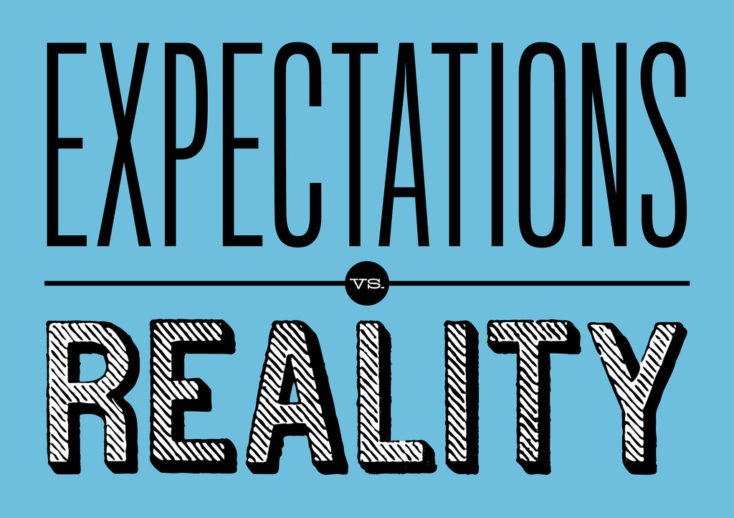 When it comes to making mistakes on a business school application, there are many places where candidates can run afoul and ruin their chances at admission. The road to an MBA contains countless potential pitfalls. You might input the wrong school name or otherwise failing to proofread. You could have generic essays designed to impress rather than reveal. Applicants often err by choosing recommenders based on their titles, not their relationship with them. However, there are also more process-oriented mistakes students make – and ways to avoid them. Time for an MBA applicant reality-check to help you sidestep the most common blunders. MBA Applicant Reality Check #1: Unrealistic School Selection There’s a lot of hype around the top b-school brands. Of course, most applicants dream of earning their MBA at Harvard Business School or Stanford Graduate School of Business. But the cold, hard truth is that these schools admit a small fraction of applicants each cycle. According to acceptance data shared by Poets & Quants, HBS admitted 12% of applicants in 2020. Stanford’s acceptance rates were around 7%. percent. The MIT Sloan School of Management and UC Berkeley Haas School of Business became (temporarily?) less competitive in 2020, with acceptance rates of about 22% and 23.3%, respectively. This doesn’t mean you should abandon all hope of attending one of the world’s best business schools. If you have strong stats and varied leadership examples and extracurriculars, go for it. But, should you fall in the camp of the other 85% of applicants, then having appropriate back-up schools is a must. Not all programs are the same. Applicants should do a lot of research and soul-searching before the school selection process. Be realistic about your profile. Aligning yourself with programs that mesh with your academic and professional background is the surest recipe for success.  MBA Applicant Reality Check #2: Scores Affect Selection As we’ve talked about in this space before, preparing early for the entrance exam is critical. Then, you can focus on compelling application essays or cultivating extra leadership opportunities. The truth is, your GMAT or GRE score will influence your school selection process. Sure, each year we hear of that miracle case where someone gets into Harvard with a 550. But that person likely had an extraordinary profile in every other way, so it offsets the low score. Use your GMAT or GRE score as a barometer to determine a comfortable range of schools to target. You can go for the “reach school” as well despite a middling test score. But make sure you incorporate the fact that you have a low score into your overall strategy.  MBA Applicant Reality Check #3: You’re Not Ready for B-School—Yet A huge mistake is applying to business school before you are really ready. It is true MBA admissions skew younger these days. Now it’s common to accept applicants with five or fewer years of work experience. But that means candidates need to be even more amazing in less time. Have you had enough life experiences to provide an interesting perspective to a class? Will your recommenders act as champions for your cause? Or is your relationship with a supervisor still new and untested? Can you devote time to improving your test score to expand your portfolio of program options? Would taking another year to strengthen your profile make more sense and yield better results? Making 100% sure that an MBA is the right step now is a crucial part of soul-searching. Once you can answer in the affirmative, you can embark on the challenging but rewarding journey toward an MBA. Image by Kristian Bjornard (CC BY-SA 2.0) The post MBA Applicant Reality Check appeared first on Stacy Blackman Consulting - MBA Admissions Consulting. |
| FROM Stacy Blackman Consulting Blog: Addressing Round 3 Deadline Dilemmas |
|
The round 3 deadline window is nearly upon us. While the final round is the biggest gamble of the application cycle, schools have that round for a reason. Typically, they use it to admit those stellar students that add something special to their classes. Successful applicants might have unusual work experience, substantial community service, a diverse background, compelling leadership examples, unique or uncommon interests outside of business, or entrepreneurial success of some sort. Here’s a sampling of reactions from the admissions teams at well-ranked MBA programs on whether round 3 is a viable option for applicants. UV Darden School of Business  The round 3 deadline at Darden is coming up on April 7, 2021. Last season, the adcom addressed a few common myths on their admissions blog. Like most schools, Darden welcomes strong applicants to apply in the later round. They understand personal circumstances may have prevented you from applying sooner. However, they would like to know more about what those reasons were. Darden suggests applicants use the Additional Comments section to explain your application timing. “This is really useful information for the Admissions Committee and can help provide context for your story and timeline,” writes Darden’s Maggie Dodson. Candidates applying during the round 3 deadline should also know that Darden still offers merit scholarships to later applicants. But, the school has a finite amount of money to award, and naturally, there is less available later in the cycle. Darden also has an answer for MBA hopefuls on the fence and wondering whether they should wait until next year. “If you have the time and resources, there is almost no reason not to apply,” Dodson writes. Even if you don’t get in, there’s still value in going through the process. “If you are not admitted, you will have a sense of how to strengthen your application for the upcoming cycle, and you will have several months before our Early Action round to do so,” Dodson notes. Michigan Ross School of Business  The Ross School is especially welcoming to later applicants—perhaps more so than other schools. “We specifically reserve spots in our class for Round 3 applicants,” admissions director Soojin Kwon explains. “In fact, we find some of our best students, academically and leadership-wise, are admitted during Round 3 each year.” Likewise, the Ross School reserves scholarship dollars for this group. The round 3 deadline at Ross is coming up on March 29, 2021. For those asking themselves whether they should apply now or wait until next year, Kwon is optimistic about the workload that awaits in these final weeks before the deadline. “If you’re asking yourself this question, it likely means that you’ve already started the application process,” she predicts. The Ross application asks for only one letter of recommendation, and the essays are short and direct, says Kwon. “Remember, there’s no chance of being admitted if you don’t apply.” Duke University Fuqua School of Business  The round 3 deadline at Duke Fuqua is coming up on March 25, 2021. Once again, it’s vital that you explain the reasoning behind your decision to apply in the third round. As this myth-busting post from 2019 explains, they see many common reasons for a late-round application. Maybe you delayed your application while you worked to improve your GMAT or GRE score. Perhaps an all-consuming project at work made applying earlier impossible. Many applicants may have a pandemic-related reason for the delay. “Or perhaps it’s simply an epiphany you had recently about where you want to be in the next two to five years,” Allison Jameson, assistant dean of admissions, writes. “Whatever the case, make it clear in the application what that catalyst was and why this timing is right.” Yale School of Management  “While we do admit fewer students in Round 3 than in other rounds, what is commonly not discussed is that we also receive fewer applications in that round,” notes Assistant Dean for Admissions Bruce DelMonico in this blog post. “So, the number of students admitted has more to do with the number of applications we receive than anything else. Talented applicants will still stand out in Round 3.” DelMonico echoes advice we tell our clients: only apply when your application is as compelling as possible. You must feel ready to take on the rigors of an elite MBA program. Make sure you’re crystal clear on why the degree makes sense for you professionally and personally. A Yale SOM student who applied in round 3 in 2019 says: “Round 3 is a great time to apply if you are clear on what you want and why you want it, and if you already have prepped for the GRE/GMAT. Be very focused on your applications—I think this is good advice no matter what, but especially for Round 3. The more targeted and strategic you are, the easier it will be to wrap it up in time and feel confident in your candidacy.” The round 3 deadline at Yale SOM is coming up on April 13, 2021. SBC’s advice for applicants targeting the round 3 deadline  You should definitely use the required or optional MBA admission essays to explain your reasons for waiting until the third – or final – round to apply. Otherwise, the AdComm could jump to the wrong conclusion. They may wonder whether you’re using round three as a last-ditch effort to get into business school in the fall after receiving rejections from other schools in earlier rounds. With fewer slots available, fine-tune your focus on schools where you’ll be a compelling candidate. A robust and well-thought-out application is critical. Make sure your academic profile aligns with the school’s median GMAT and average GPA. Also, consider whether you add something special to the class that the admissions committee didn’t see earlier in the season. Standing out from the pack is imperative, and never more so than when applying later in the game. To do well in the admissions process, you have to communicate who you are, not just what you do. Finally, it’s essential to have a Plan B in case things don’t go your way. You can always apply to a set of schools in round 3, knowing there is a good chance you will need to reapply to them and add in some new options next season. The post Addressing Round 3 Deadline Dilemmas appeared first on Stacy Blackman Consulting - MBA Admissions Consulting. |
| FROM Stacy Blackman Consulting Blog: B-Schooled Podcast Episode #46: Social Media & Your MBA Candidacy |
 In this episode of B-Schooled, we discuss how your social media behavior could affect your MBA candidacy — both positively and negatively. We cover what admissions committees might be looking for that could be problematic, as well as what kinds of social media posts might actually end up strengthening your profile. We also talk about how reviews of your social media accounts don’t end with the AdCom once you’re admitted. Learn more in B-Schooled episode #46, which you can listen to here, or on any of the podcast apps listed below. B-Schooled is available on most major podcast apps, including: Apple Podcasts Spotify Stitcher TuneIn Please be sure to subscribe to B-Schooled so that you don’t miss a thing. If there’s something you’d like for us to cover in a future episode, please email podcast@stacyblackman.com. We’d love to hear from you! The post B-Schooled Podcast Episode #46: Social Media & Your MBA Candidacy appeared first on Stacy Blackman Consulting - MBA Admissions Consulting. |
| FROM Stacy Blackman Consulting Blog: Insider Intel for Columbia Business School Applicants |
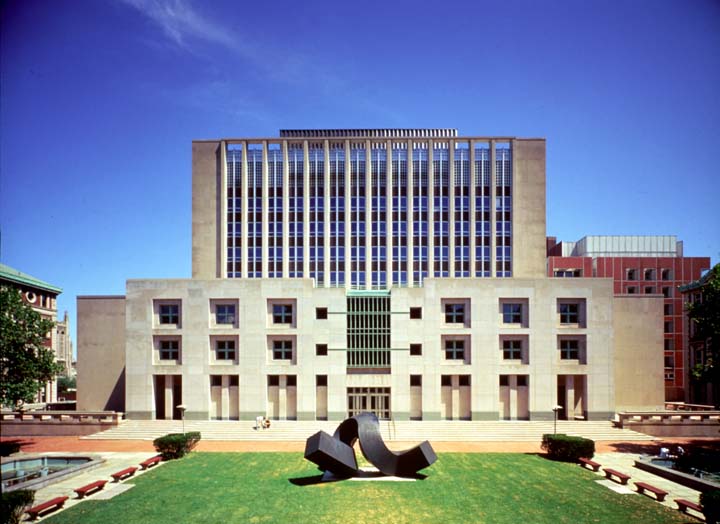 Is Columbia Business School on your shortlist of target MBA programs? Then you won’t want to miss this conversation with a CBS insider. Today, we’re excited to share a Q&A with Ally, our newest SBC MBA admissions consultant. Ally brings six years of admissions experience to the SBC team, most recently as an Assistant Director of Admission for the full-time MBA program at CBS. During her time at Columbia, Ally reviewed applications, planned recruitment events, and interviewed candidates for both the full-time MBA program and the Executive MBA program. Ally also managed the class visit program at Columbia and worked to ensure prospective students had a meaningful, engaging, and fun experience. 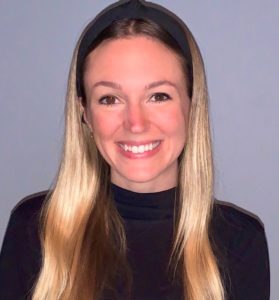 These events allowed her to observe an abundance of prospective CBS students. More importantly, she knows what it takes for Columbia applicants to get admitted into this prestigious full-time MBA program. We’ve asked Ally for her insights into pursuing an MBA in a moment of crisis. Also, we wanted to find out what advice she would offer to Columbia Business School applicants in particular. Here’s what Ally had to say. What major changes took place during your time in CBS Admissions? I think the big change on everyone’s mind is COVID-19! Quickly pivoting to offer entirely virtual programming for prospective students was both a challenge and exciting at the same time. It was challenging because we love the in-person experience of welcoming prospective students to campus and getting to know them. But it was also exciting in that it gave us an opportunity to connect with prospective students all over the world, who otherwise could not visit the campus. It also presented a really great time for students to pursue an MBA—with some uncertainty in the job market, it’s natural to think about taking a step back and pausing your career for a few years to go back to school. What are the most common reasons why MBA applicants apply to CBS? Columbia Business School applicants are drawn to the location and the opportunity to successfully pursue any career you could imagine (what can’t you do in NYC?!), its tight-knit community and super involved student life, and the amazing faculty and opportunity to learn from some incredible industry leaders.  Share with us the top 3 reasons why you loved the CBS MBA program. The top three reasons why I loved the CBS MBA program so much are because of the students. They really are amazing and so involved and eager to connect with prospective students, which made my job easier! Also, I worked closely with the Columbia Women in Business club, which is one of the largest clubs on campus. It was just amazing to see so many great women accomplish such cool things. Plus, the faculty is so great and approachable. I managed our class visit program, which presented a great opportunity to work closely with some of our faculty members. When I left my job at CBS to pursue another opportunity, one of the things I was most sad about was that I wouldn’t get to work with the faculty members anymore! Another reason is the location. It’s a great place for students to work together but also enjoy all that’s going on in their surroundings, both professionally and socially.  What are the key aspects Columbia Business School applicants should know? A key aspect of the program is becoming involved on campus and immersing yourself in the CBS community. The students work wonderfully together; it’s not the cutthroat place that some imagine when they think of an NYC school. It’s also important to know that it’s interesting academically. You can take whatever electives you want—and out of about 400, more than any of our peer schools, there are certainly plenty of options that you will want to take. Something that applicants may not know is how well CBS connects students with the surrounding city (and the world). There are various immersion programs students can take as electives that allow them to spend time in class with their classmates and professors, and also spend time off-site doing corporate visits around the city (and globally). What application advice do you have for applicants to CBS’s MBA program? My best advice is just to be yourself! The CBS Admissions Committee wants to get to know YOU, not someone you think the AdCom wants to see. Be as specific as possible in your application and show that you’ve taken time to get to know the program. Don’t just list some basic website-level knowledge. 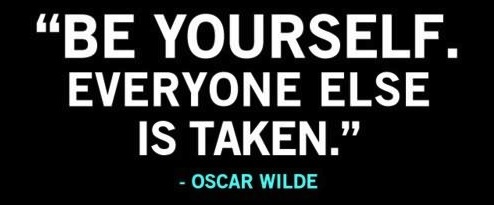 Review your essays and make sure you are actually answering the questions asked! My favorite applications were always the ones that had great essays where it was clear that the applicant was really being their authentic self. What advice do you have for students at CBS’s MBA program, to make the most of the experience? Take advantage of everything there is to take advantage of! It’s two years of being able to focus entirely on the program—academics, growing your network, getting involved in clubs, and enjoying NYC. Do it all, but don’t burn yourself out! You know yourself best and know what you have the capacity for. Be mindful of this, but also don’t be afraid to try new things. Do you think the CBS MBA essay prompts will remain the same in the coming season, and why? AdComs will always want to know certain things, such as your career goals and why their program. But schools will sometimes change one of their questions to allow us to get to know the candidate better. The third essay question at CBS is still pretty new, so I’m not sure it will change too soon. What do you think the future looks like for CBS’s MBA program? Any predictions about how the program will evolve ahead? Well, the new Manhattanville campus is opening somewhat soon, which I think will allow the program to be even more innovative and exciting than it already is. *** Thanks so much, Ally, for sharing your CBS insights with our blog readers! Stacy Blackman Consulting is the only MBA admissions firm with a complete panel of former Admissions Officers. If you would like to learn more about working with us, you can request a free analysis of your candidacy here. We look forward to meeting you! The post Insider Intel for Columbia Business School Applicants appeared first on Stacy Blackman Consulting - MBA Admissions Consulting. |
| FROM Stacy Blackman Consulting Blog: Dealing With the Office Know-it-All |
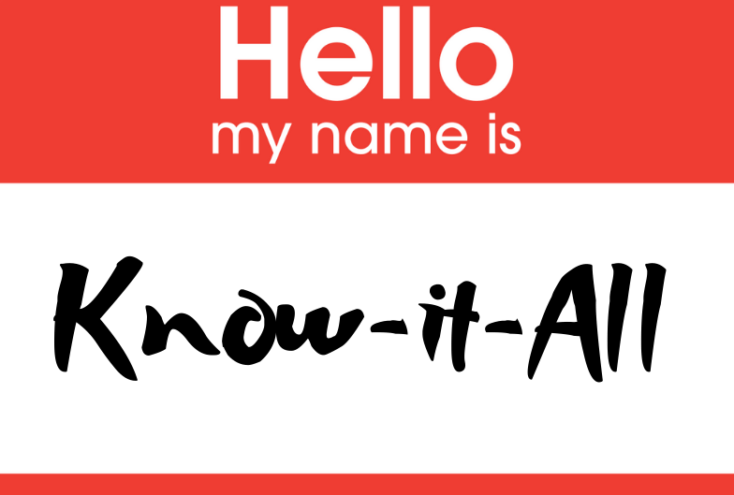 “Fresh ideas from the Blacklight” SBC’s Weekly Newsletter for Professionals Ah…the office know-it-all. Almost every workplace has one. You know the type: They think they’re always right and would rather die than admit to being wrong. They dig in their heels when confronted with an opposing viewpoint. Without a doubt, they believe they are the smartest person in the room. Whether you work side by side with this person or need to manage their outsized personality, working with a know-it-all colleague is totes frustrating. See if these tips can help you better deal with people who exhibit “chronic certainty.” Don’t react in the heat of the moment Biting your tongue while Mr. Know-it-All lets you know why his solution to X problem is far superior to yours requires Herculean restraint. But reacting in the heat of the moment will trigger a confrontation that benefits precisely no one. Those who must always be right are often hot-headed and quick to overreact. Don’t fall into their trap. Instead, take time to cool off and then schedule a meeting to discuss the issue. Keep emotions out of it You want to call them out on the condescending behavior without displaying anger or exasperation. After all, you’re supposed to be the one with higher emotional intelligence in this scenario. Keep the conversation focused on the goal or problem at hand. Provide explicit examples of what you observed. Did Mr. Know-it-All cut you off in a meeting before you could offer an alternative viewpoint? Maybe he dismissed your proposal as inferior without giving it full consideration. If you can remain calm and factual, you’re setting an excellent example for Mr. Know-it-All to mirror in the future. Determine if office culture is a contributor As this piece in Harvard Business Review points out, sometimes the working environment unwittingly encourages overconfidence. If the prevailing company culture is uber-competitive and prizes assertive behavior, employees may view wavering as a sign of weakness. The authors suggest that managers discourage know-it-all behavior by asking people to come to meetings armed and ready to share the pros and cons of the issue at hand. They also suggest making it the norm to have team members weigh in with opposing views when making decisions. These approaches balance confidence in one’s opinion without the dogma of certainty, they say. Call out the behavior if you manage or mentor a know-it-all Ignoring employees or mentees who act like the smartest person in the room can create a hostile work environment for team members who must put up with the egomaniac. Even if they are star employees in every other respect, you’ve got to let them know their attitude is harming their career, writes Priscilla Claman in HBR. Again, keep the feedback objective, specific, and credible. As a supervisor, it falls on you to set the tone for your team. Mr. or Ms. Know-it-All may never wholly shed their patronizing ways, but these tips can help you co-exist peacefully. *** Did you like this post about dealing with a know-it-all colleague? It originally appeared on the Blacklight, our weekly newsletter for professionals. At the Blacklight, we aim to illuminate with every dispatch that lands in your inbox. If you’re thirsty for guidance to help you slay it at work or as a student and move your goalposts closer, sign up today! The post Dealing With the Office Know-it-All appeared first on Stacy Blackman Consulting - MBA Admissions Consulting. |

|
|